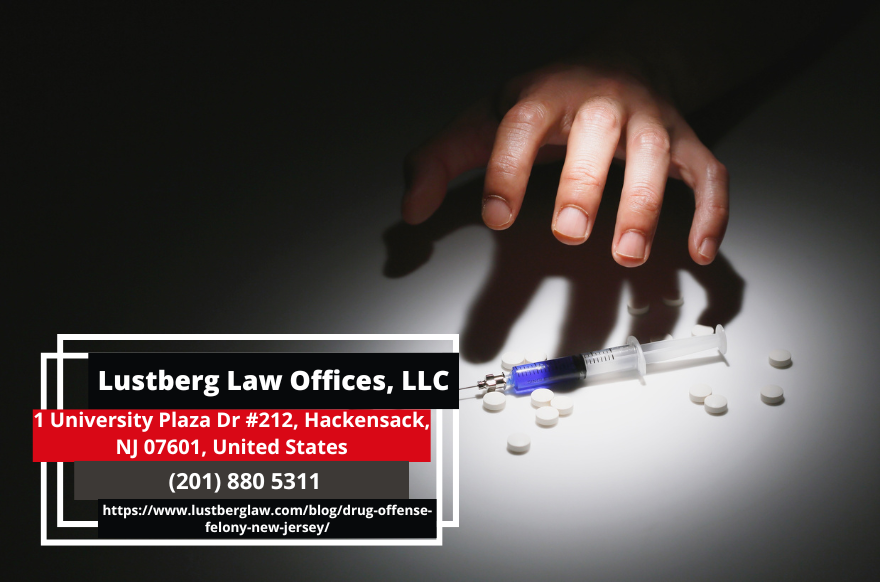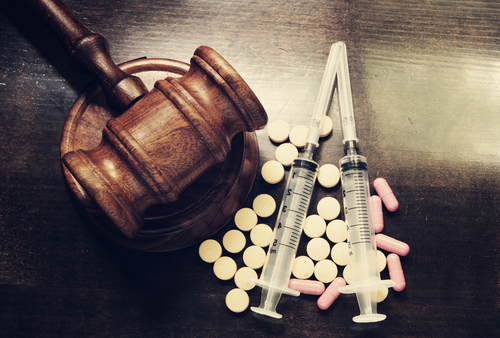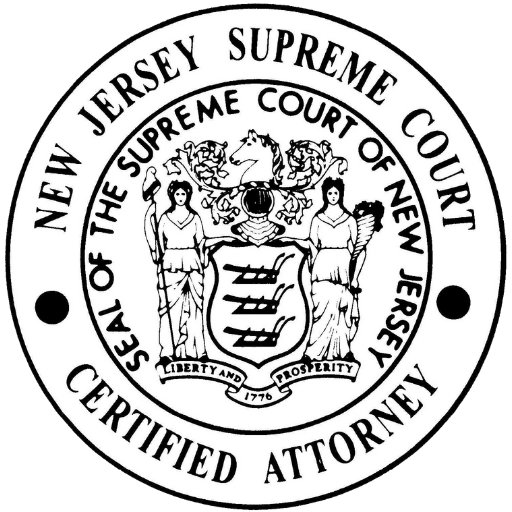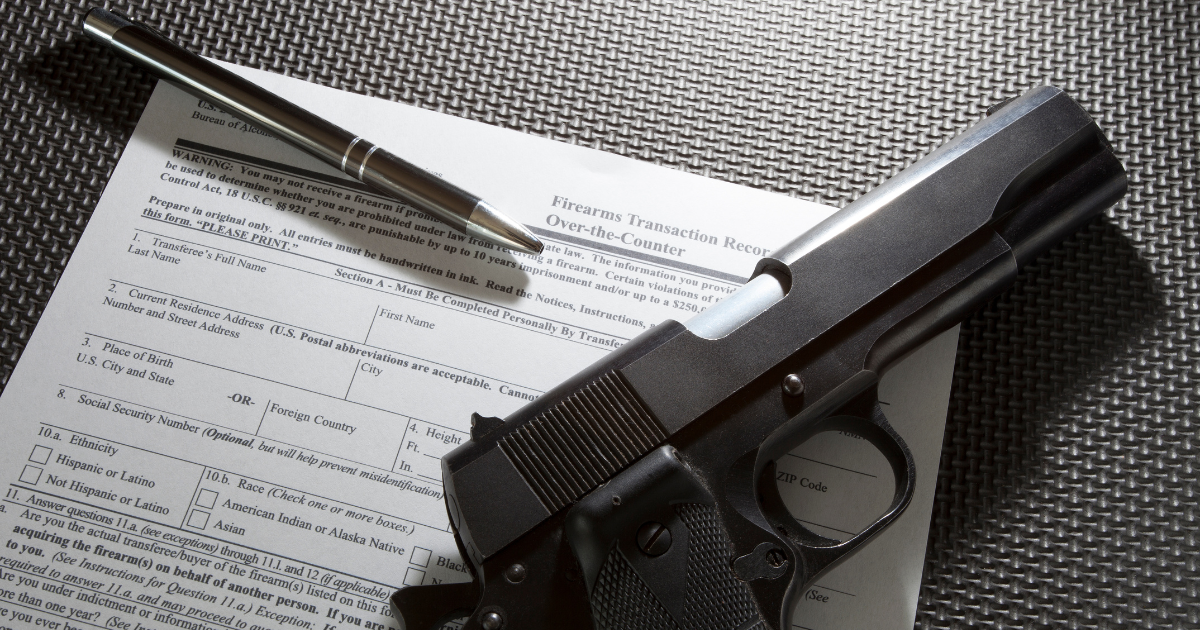The United States is still in the grip of the opioid crisis, and New Jersey feels that pressure every day. More arrests happen, more charges get filed, yet many people get a surprise when they learn that drug offenses come in different grades.
In New Jersey, the most serious drug charge is called an indictable crime. It is NJ’s version of a felony, one that puts you at risk of more than six months behind bars. Some drug offenses fall into a lighter category known as disorderly persons offenses. Disorderly persons offenses carry a maximum of six months in jail, and judges often hand down fines or probation instead of time inside.
The grading matters a lot because the length of one’s sentence for a drug conviction changes with it. A case can jump to the indictable level based on things like the type of drug, how much is involved, and other aggravating details.
At Lustberg Law Offices, LLC, NJ drug crimes attorney Adam M. Lustberg has years of courtroom experience defending clients who are facing drug-related charges. Our team of skilled New Jersey drug crimes lawyers can help you protect your rights and your freedom if you are charged with drug trafficking, possession of drug paraphernalia, or any other drug offenses in New Jersey. Contact us today at (201) 880-5311 to schedule a free consultation.
Basic Factors That Influence Whether a Drug Crime Constitutes a Felony or a Lesser Offense
New Jersey judges look at a few core things before deciding if your drug charge turns into a felony or stays a lower-level offense. These factors can include:
- Whether the drugs in a person’s possession weigh over a certain amount
- What types of drugs were involved in the crime
- What was the person’s purpose for possessing the drugs at the time he or she committed the offense
Basically, you’re looking at a serious indictable crime if you have a large quantity of drugs, you’re caught with something like heroin or cocaine, or if there are any signs you planned to sell or share them.
New Jersey Drug Crimes Lawyer

Adam M. Lustberg
Attorney Adam M. Lustberg is a seasoned New Jersey criminal defense lawyer who brings over 14 years of dedicated legal experience to clients facing drug charges and other serious offenses. A graduate of Seton Hall University School of Law, Mr. Lustberg’s passion for criminal defense took root during his internships at the Essex County Public Defender’s Office, where he represented juveniles and began building his courtroom skills early on. Since then, he has represented clients at all stages of the criminal justice process, from arraignment to trial, and has argued over 30 detention hearings under New Jersey’s criminal justice reform.
Known for his meticulous preparation and tireless advocacy, Adam has defended clients against charges ranging from marijuana possession to high-stakes cases like homicide, firearm offenses, and trafficking. His deep understanding of the law, paired with a pragmatic approach to working with clients, prosecutors, and judges, has earned him top accolades, such as a 10/10 Avvo rating, repeated inclusion on the SuperLawyers Rising Stars list, and recognition as one of Bergen’s Best Lawyers. For anyone facing drug-related charges in New Jersey, Adam M. Lustberg offers the experienced, aggressive defense that can make all the difference.

Is Drug Possession a Felony?
In New Jersey, drug crimes aren’t labeled as misdemeanors or felonies. Instead, the state employs the terms “disorderly persons offenses” and “indictable crimes.” Those charged with disorderly persons offenses can face penalties including a maximum of six months in jail and a fine up to $1,000. On the other hand, the penalties for the least severe indictable crimes (categorized as fourth-degree) typically encompass up to 18 months in prison and a fine of up to $10,000. For specific fourth-degree drug-related offenses, the fines can escalate to $25,000.
Regarding drug possession, New Jersey’s cannabis reform now permits adults age 21+ to possess up to six (6) ounces of marijuana without any criminal penalty; possession above that amount is a fourth-degree indictable offense punishable by up to 18 months in prison and a fine of up to $25,000.
For prescription medications, the laws distinctly state that possessing four (4) or fewer dosage units of a prescription legend drug without a valid prescription is a disorderly persons offense, while possessing five (5) or more dosage units is a fourth-degree indictable crime.
- Possessing more than six ounces of marijuana
- Having five or more doses of a prescription medication without a valid prescription
- Possession of any amount of cocaine, heroin, methamphetamine, or other Schedule I/II substances
- Holding any measure of substances like oxycodone or ecstasy
- Possessing any amount of other prohibited drugs.
Facing drug possession charges and the potential felony classification can be a daunting experience, but you don’t have to navigate it alone. At Lustberg Law Offices, LLC, our New Jersey drug crimes lawyers have a seasoned understanding of drug possession laws in the state. We can provide you with the guidance and representation necessary to protect your rights and achieve the best possible outcome for your case. Take the first step in securing your future by contacting us today.
| Factor | Examples / Details | Impact on Charge |
|---|---|---|
| Quantity of Drugs | Possessing over certain weight limits (e.g., several ounces of cocaine) | More likely to be charged as a felony |
| Type of Drug | Heroin, cocaine, methamphetamine vs. small amounts of marijuana | Harder substances typically lead to felony-level charges |
| Purpose of Possession | Intent to distribute, sell, or share drugs vs. personal use | Intent to distribute strongly increases severity and likelihood of felony |
What Is the Penalty for a 1st Time Drug Offense in NJ?
In New Jersey, penalties for a first-time drug offense can vary significantly depending on the type of drug, the quantity, and the nature of the charge.
For individuals caught with prescription drugs without a valid prescription, the penalty is based on the number of dosage units. Possessing four (4) or fewer units is a disorderly persons offense, which carries a potential sentence of up to six months in jail and a fine of up to $1,000. If the person possesses five (5) or more units, it becomes a fourth-degree indictable crime, punishable by up to 18 months in prison and a fine of up to $10,000.
The situation becomes even graver if the charges involve possession with the intent to distribute. The penalties for this offense are tiered based on drug type and weight, resulting in a very broad range of possible sentences. Depending on the specifics of the case, a first-time offender could face anything from a fourth-degree crime (punishable by up to 18 months in prison) for small amounts, up to a first-degree crime for large quantities, which carries a prison term of 10 to 20 years and fines that can soar up to $500,000.
It’s important for individuals facing such charges to understand the severity of the situation and its potential impact on their future. The penalties reflect the state’s tough stance on drug offenses and highlight the legal risks involved in such activities.
If you’re facing a first-time drug offense in New Jersey, it’s crucial to understand the seriousness of the situation and its potential impact on your future. A skilled New Jersey drug crimes lawyer from Lustberg Law Offices, LLC can provide invaluable support, helping you face the legal process and work toward the best possible outcome for your case. Contact us today to discuss your situation and get the guidance you need to protect your rights and future.
Dismissing a First-Time Felony Charge
It is possible to have a first-offense felony charge dismissed in New Jersey. If you and your defense lawyer can prove that the way the drugs were found was flawed, your legal representative may be able to argue to have your case dismissed. This flaw in the police officer’s actions could mean that the way the drugs were recovered was in violation of the US or New Jersey Constitution. It is also possible to dismiss the charges if the particular facts or circumstances surrounding the case do not support the accusations.
Furthermore, completing a pre-trial intervention program can also help dismiss the charges. Pre-trial intervention places defendants on probation for a specified time period. Additional conditions could also be placed on the defendant while they are completing their pre-trial intervention. Once the defendant is able to comply with all the conditions, the charges could be dropped.
At Lustberg Law Offices, LLC, our team of skilled drug crimes lawyers, along with NJ criminal defense attorney Adam M. Lustberg, understands the importance of protecting your rights and your freedom. We may be able to help you create a solid defense strategy to help you receive a more favorable outcome. To schedule a free consultation, call us today.
What Are Your Options After a Felony Drug Charge?
A felony drug arrest in New Jersey can feel overwhelming, but it is not the end of your future. New Jersey law offers several potential paths to consider, and the first step is learning what applies to your case.
Start with a close look at the evidence against you. If officers lacked a valid warrant, pulled you over without reasonable suspicion, or forced a search without your consent, the judge may exclude the seized drugs from evidence. Additionally, weaknesses such as errors in lab testing, gaps in the chain of custody, or shaky claims that you “controlled” the substance can also lead to dismissal of the case.
If you have little or no prior criminal record, Pre‑Trial Intervention (PTI) may be on the table. PTI accepts many third- and fourth-degree drug felony charges for first-time offenders and allows you to complete supervised counseling or treatment instead of serving prison time. Upon successful completion, the charges are dismissed; however, you generally only get one opportunity to participate in PTI.
For non-violent offenders struggling with substance use disorders, Recovery Court (commonly called Drug Court) offers a longer, treatment-focused alternative to incarceration. Entry requires pleading guilty and agreeing to intensive supervision, frequent drug testing, and therapy. Completing the program not only helps you avoid state prison but can also lead to a special expungement that wipes your entire criminal record clean.
Other possibilities include plea negotiations aimed at downgrading felony charges to a disorderly persons offense, which may open up eligibility for a separate diversionary program called Conditional Discharge. Additionally, enrollment in private treatment programs can often persuade prosecutors and judges to agree to a more favorable outcome at sentencing.
Not every defendant or case qualifies for these programs, which is why consulting a dedicated New Jersey drug crimes lawyer quickly is crucial. A skilled attorney can review police procedures, determine eligibility for diversionary programs, and negotiate with prosecutors to achieve the most favorable outcome for you.
Contact Experienced Hackensack Criminal Defense Lawyer Adam M. Lustberg for a Free Initial Consultation
If you have been arrested for a serious drug crime in Hackensack, Paramus, Fort Lee, Fair Lawn, Lodi, Garfield, or anywhere else in Bergen County, NJ, you need an experienced criminal defense lawyer to defend you and to help you get the charges dropped, altered or downgraded. Experienced criminal defense attorney Adam M. Lustberg provides just the type of legal counsel you need to help beat your felony drug charges. Contact Lustberg Law Offices, LLC via our online contact form to determine the best course of action for your case.
The articles on this blog are for informative purposes only and are no substitute for legal advice or an attorney-client relationship. If you are seeking legal advice, please contact our law firm directly.






